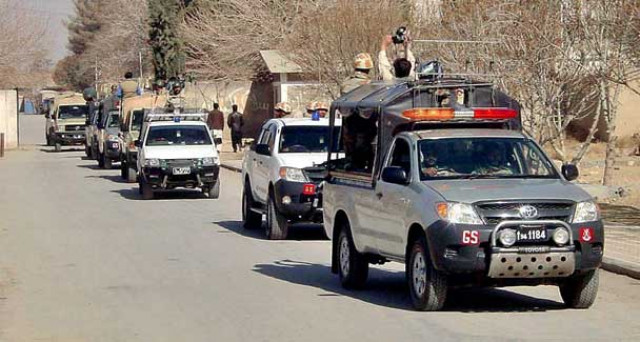The Balochistan conundrum
There is a critical need for the provincial government to take full charge of the security.

A file photo of FC in Balochistan. PHOTO: APP
Sadly, the state has not been dealing with the genuine grievances of the population politically. Instead, what we have witnessed are military operations, compounding the resentment against the federation. Recent elections have renewed the hope for a political rapprochement between the estranged Baloch people, their leaders and the state. Due to its strategic importance and growing role of China in the region, Balochistan is also an arena where Pakistan claims that it is fighting external intervention and support to the insurgents. Also, the upper districts of Balochistan have become a hub of sectarian violence due to the Lashkar-e-Jhangvi’s activities. Reportedly, the Afghan Taliban have also operated from the province. This makes Balochistan a complex area to be governed. The absence of state institutions also makes it more difficult for civilian administration to maintain law and order. There is a critical need for the provincial government to take full charge of the security and build the institutions of governance with public support. It is vital for the civil and military leadership to view Balochistan, not from the short-term “insurgency” lens, but from the long-term perspective of giving Baloch, Pashtun, Hazara and other communities in the province, their due political and economic rights.
The prime minister in his recent visit also issued the right directive: that the intelligence agencies should coordinate better and report to the provincial government. PM Sharif realises that this may be the last chance to solve the Balochistan problem. Pakistan must not lose this opportunity of reconciliation and strengthening the federal structure.
Published in The Express Tribune, July 10th, 2013.
Like Opinion & Editorial on Facebook, follow @ETOpEd on Twitter to receive all updates on all our daily pieces.








1724319076-0/Untitled-design-(5)1724319076-0-208x130.webp)






COMMENTS
Comments are moderated and generally will be posted if they are on-topic and not abusive.
For more information, please see our Comments FAQ